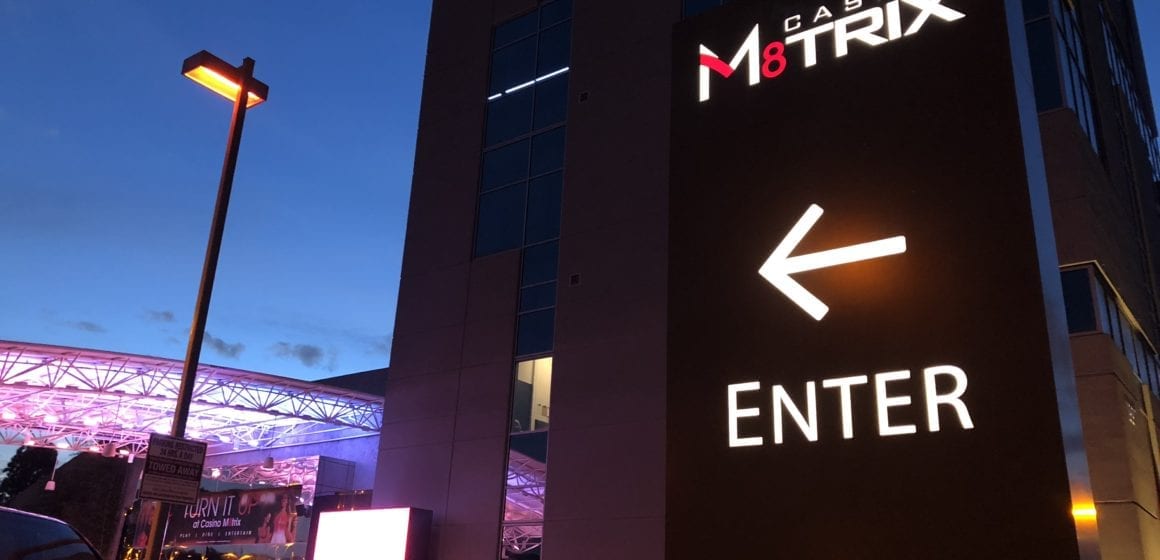As a bill that could open card rooms up to new legal scrutiny makes its way through the state Legislature, San Jose officials aren’t willing to accept the hand they’ve been dealt.
The city is strongly opposing Senate Bill 549, a measure that would allow tribes to sue card rooms over the games they offer. If it passes—and if those lawsuits are successful—the landscape of legal gambling in California could change dramatically, functionally outlawing much of card rooms’ business and starving cities like San Jose of tax money in an already turbulent economy.
The bill is “a last-minute attempt to assist tribes in their efforts to file a large number of lawsuits to challenge long established games by card rooms across California,” wrote Sarah Zarate, the city’s policy and government relations director, in a June 28 letter. It could “eliminate thousands of card room jobs and millions of dollars in municipal revenue in dozens of California cities.”
San Jose’s two card rooms employ more than 2,000 people, according to the California Gaming Association.
When state Sen. Josh Newman of Fullerton introduced SB 549 in February, it was an education-related bill. But in June, through a legislative process known as gut-and-amend, its contents were wholly replaced. Newly renamed the Tribal Declaratory Relief Act, the bill now represents the latest front in a long-running battle over whether card rooms unaffiliated with tribal casinos can legally operate.
Gamblers who visit tribal casinos in California, as in Las Vegas, place their bets against “the house”—that is, the casino itself. When they lose, the casino makes money. That sort of gaming is illegal on non-tribal lands.
Card rooms comply with the law by letting players bet against other players or against a third party acting as a player, as Rob Lindo, vice president of San Jose card room Casino M8trix, explained. In these games, called player-dealer games, no “house” money is involved. Card rooms also can’t offer slot machines, while tribal casinos do.
California card rooms “are in the table and chair rental business,” Sean Kali-rai, a lobbyist who works with San Jose’s card rooms, told San José Spotlight. That’s how they make money: “They give you a safe space and tables and chairs where players can play against other players by a defined set of rules.”
Tribes argue that by allowing betting on player-dealer card games, these card rooms skirt California’s constitutionally enshrined monopoly on legal gambling. Under current law, tribes don’t have the standing to challenge the legality of card rooms in court. Their attempts to settle the issue in their favor through other means—recently, with 2022’s ill-fated ballot measure Prop. 26 and other legal challenges—have so far failed.
SB 549 would grant tribes the ability to sue card rooms, potentially paving the way for courts to side with them and crack down on card room gambling. That could have severe implications for cities across California that rely on these card rooms for tax revenue—and they’ve begun lobbying aggressively against it.
“The havoc” caused by lawsuits resulting from the bill “will reach City Hall,” wrote Tasha Cerda, chair of the California Cities Gaming Authority, a lobby group of which San Jose is also a member.
Carolina Camarena, spokesperson for the city manager’s office, told San José Spotlight the city has held more than a dozen conversations with state lawmakers to fight the bill.
In an Assembly committee report about SB 549, Newman stressed his bill wouldn’t predetermine the outcome of these lawsuits. It would simply ask the courts “to resolve the longstanding dispute over whether certain controlled games operated by California card clubs are illegal banking card games and whether they infringe upon tribal gaming rights.”
Newman’s office did not return a request for comment.
James Siva, chair of the California Nations Indian Gaming Association, said the bill would erase ambiguity about the legality of player-dealer card games.
“Though we strongly believe we are ultimately right in our belief that these games are illegal, there is risk for tribes and a positive outcome for us is not guaranteed,” he told San José Spotlight. “However, if commercial card clubs, whose interests largely oppose this bill, are confident in what they are doing is legal, then they should be as eager as we are to put this before the courts.”
Lindo said the state’s card rooms make the vast majority of their money from fees on player-dealer card games. If those games are ultimately barred as a result of SB 549, that would “decimate the industry across the state and around San Jose.”
“If I owned a business, and 80% of my revenue disappeared, I might not find it profitable enough or feasible to keep the rest of the business going,” he added.
Camarena said that card room closures could cost the city about $32 million in tax revenue. That’s more than double what the city expects to make from cannabis taxes—a revenue stream city officials have begun trying harder to tap, as cannabis businesses remain slow to expand.
The nearest tribal casino to San Jose is Graton Resort in Sonoma County. Kali-rai argued that without card rooms, South Bay gamblers won’t simply stop playing—they’ll just move their games underground.
Lindo said the bill, if enacted, would result in a flurry of legal activity as tribes sue and “every other party involved in the gaming industry” lawyers up in response.
“We believe our industry is legal,” Lindo said. “We believe that this bill is bad for California. And we believe the issue has been resolved.”
Contact Graph Massara at [email protected] or follow him on Twitter @BylineGraph.



Leave a Reply
You must be logged in to post a comment.